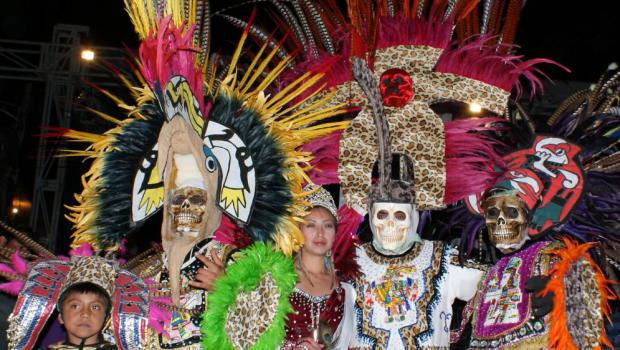
About the Course
ILAC 10SC
Prerequisites: SPANLANG 3 or equivalent
Wouldn’t it be great if you could quickly increase your Spanish proficiency through an intensive immersion experience right here at Stanford? Wouldn’t you love to gain the cultural and historical knowledge necessary to begin taking film, literature, and culture courses generally reserved for advanced students? This intensive Spanish immersion course is designed to help students who have completed a year of Spanish to move forward quickly toward greater linguistic and cultural competence.
After a year of Spanish, students tend to be able to handle straightforward interactions related to basic needs and personal information, but they generally lack the ability to handle more abstract discussions or to combine short utterances into longer presentations of their ideas. Most students likewise have little knowledge of the rich and complex history that surrounds the Spanish language or the central role that Spanish has played in the cultural, artistic, and political life of California.
In this course, a team of experienced instructors will help students improve their Spanish through intensive lessons that incorporate film, literature, and social issues. Through a focused discussion of the themes of immigration and democracy in Spain, Latin America, and the United States, as well as excursions and guest lectures by Stanford faculty and community leaders, this course will immerse students in Spanish and help them to gain advanced proficiency much more quickly.
Click to see a video about this course
Instructor Bios
 Jorge Rufinelli has published 20 books of literary and cultural criticism and more than 500 articles, critical notes, and reviews in journals throughout the world. He is a recognized authority on Onetti, García Márquez, Juan Rulfo, and Latin American literary history. During the 90s his work centered on Latin American cinema; in 1993 he filmed a documentary on Augusto Monterroso for which he interviewed major Mexican writers and critics. He is compiling the first Encyclopedia of Latin American Cinema, for which he has written around 2,000 articles on feature films from and about Latin America. His current work also includes a book of interpretation and survey of the most recent Spanish-American prose published by writers born after 1968, a project that analyzes the work, marketing, and reception of more than 50 authors (Ana Solari, Milagros Socorro, Karla Suarez, Mayra Santos, David Toscana, Rodrigo Fresan, Juan Forn, Martin Kohan, and Jorge Vopli, among others). His teaching centers on the intersection of the interests above and cultural politics.
Jorge Rufinelli has published 20 books of literary and cultural criticism and more than 500 articles, critical notes, and reviews in journals throughout the world. He is a recognized authority on Onetti, García Márquez, Juan Rulfo, and Latin American literary history. During the 90s his work centered on Latin American cinema; in 1993 he filmed a documentary on Augusto Monterroso for which he interviewed major Mexican writers and critics. He is compiling the first Encyclopedia of Latin American Cinema, for which he has written around 2,000 articles on feature films from and about Latin America. His current work also includes a book of interpretation and survey of the most recent Spanish-American prose published by writers born after 1968, a project that analyzes the work, marketing, and reception of more than 50 authors (Ana Solari, Milagros Socorro, Karla Suarez, Mayra Santos, David Toscana, Rodrigo Fresan, Juan Forn, Martin Kohan, and Jorge Vopli, among others). His teaching centers on the intersection of the interests above and cultural politics.

Hae-Joon Won grew up in Peru, Colombia, and Puerto Rico, and received a Ph.D. from the Universidad Complutense de Madrid with the highest recognition of Apto “cum laude”. Her specialty is Spanish Golden Age literature with emphasis on drama of the 17th century. She has been teaching at Stanford since 1999 and coordinates the First Year Accelerated program. She also teaches at the Continuing Studies Program at Stanford. In addition to her professional pursuits she enjoys archery, yoga, hiking and traveling.

María Cristina Urruela specializes in 19th-century Iberian Peninsular Literature and has taught at Harvard, Middlebury, Texas A&M International and Stanford since receiving her PhD from the University of Texas at Austin. Her translations of short stories by Emilia Pardo Bazán and María Pilar Sinués de Marco have been published by the Modern Language Association.



